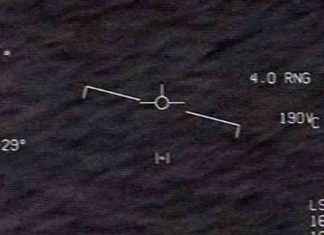the VERONA – On the occasion of the world Day of Radio – we learn from the Life – a new project from the Democratic Republic of the Congo (DRC): an issuer “eco-friendly” located in the heart of the national Park Kahuzi-Biega. The radio remains one of the main tools of african communities to make their voice heard. Will start broadcasting officially on 20 march from its base, located right in the heart of the national Park of Kahuzi-Biega, the new radio station Gorilla FM”, project realized in collaboration with RFI Planète radio, Coopération suisse, and the NGO Internews.
distinguishing Features. Is a radio “environmental”, as defined by its creators, which will increase awareness about the issues of pollution and education in the field of the environment. Its geographical location is also perfectly in line with the theme, as well as the team that will work on the project, that is, young people, and especially the inhabitants of the place, Pygmies included. The fact that it is located within the green lung of the region, Unesco world heritage site since 1980, has a very precise purpose and that is to get as close as possible to those who live here, and at the same time bring to the attention of all, even outside of the park, and possibly up to the heart of the State, the problems related to deforestation and pollution.
inquiries to make. This will be implemented through making inquiries, the story of the projects put in place to safeguard the ecosystem, the launch of news related to the territory, all seasoned with good music, congolese, selected for the listeners. Do not miss books related to the topics of health, agriculture, livestock, fisheries, food and even a bulletin of information assembled with information provided by the corresponding scattered throughout the area.
The look on pollution. one of the first articles published on the web site (already active although still in construction), an investigation on the pollution of the city of Bukavu and Lake Kivu, caused by poor waste management and low awareness of the local population. Still, the story of the project of a young congolese, who with the help of artists, through song and dance, is committed to promoting awareness for the preservation of the environment, and even to the authorities with letters and exhortations.
Radio: the voice of Africa. Since colonial times, the instrument of radio was in Africa a basic means of communication, one that is able to reach everyone: not used for propaganda or counter-propaganda in some cases, as a channel to convey useful information to the populations (particularly in the fields of education and health), as a voice subversive. Sometimes with negative purposes, fomenting ethnic hatred and conflicts, sometimes just to stand up to them, brandishing the flag of peace and reconciliation. From radio broadcasts in English and French, to those in the local language with the birth of the so-called “radio rural” that promote the direct participation of the community, both listening to it in their production programs. Simple newspaper zones or stations on specific topics, with always more space left to the young.
In Burundi. The “Ndafise Ikibanza” was created in 2013 specifically to give a voice to those who normally would not be there, especially to the young burundians who have something to say: the central goal is to spread citizen journalism and encourage the children to go among the people, and to express who would not otherwise have the power to do so, in addition to broadcasts targeted just for young people.
In Mali. is one of the countries that owns the most radio stations. Radio Bèndugu, working only and exclusively for the solar panels, is sensitive to the issues of the environment and of the female universe, while Radio Madjoura deals with religious themes. In Senegal, Penc-mi FM speaks of human rights, health, women and education, while in Nigeria, the project Ruranet, started in the year 2000 in collaboration with UNESCO, has given life to a network of 150 radio stations in rural, immersed in the nucleus of the community to talk about their hygiene and education, with instructions that are very practical and the immediate.
Stories is not always seen eye for good. Undeniable that it is not at all easy to raise your voice as much as you can do, instead, with the volume of the radio: what you tell is not always frowned upon, and the risk of intimidation on the part of those who have an interest in keeping hidden certain questions, urges you to take precautions. In the case of sudan, Radio Dabanga that since 2008, speaks about the conflicts and rights, and, in 2016, as a result of the cholera epidemic that struck the Sudan, provided information that was essential and vital on how to prevent and treat the infection. The government of Sudan denied it, but the sword is that it was cholera, censoring any attempt to inform. Now Radio Dabanga transmits its programmes from Amsterdam.
* Claudia Sour writes for Nigrizia
“The Republic will fight always in defense of the freedom of information, to its readers and to all those who have at heart the principles of democracy and civil coexistence”
Carlo Verdelli SUBSCRIBERS TO REPUBLIC © Reproduction reserved Today on the Siege to Europe Greece, a wall against the in-migrants to the blackmail of The Sultan: the other three billion to stop the wave Bonino: “Europe has failed the migrants and has given Erdogan the weapon of blackmail” Europe between virus and migrants: two crises, the same failure
the Republic







